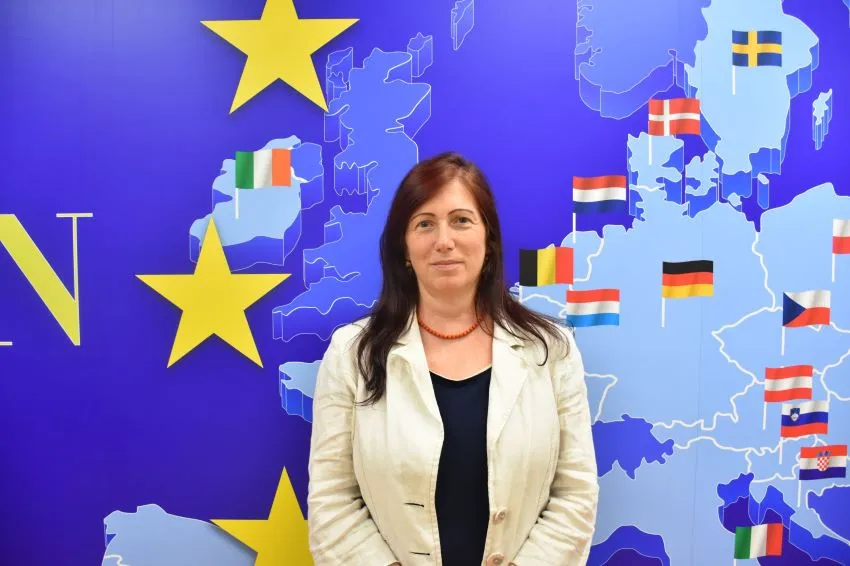
Diplomacy, or the art of being where decisions are made
Let's immediately forget the figure of the diplomat with a briefcase full of burning documents that reveal who knows what intrigues, a stereotypical image of many spy films. The modern diplomat is today a highly qualified official who serves his country, companies and his fellow countrymen who increasingly travel abroad for work or tourism. Then, in relation to his role, he often has direct relations with world leaders is a consequence of his job, perhaps the most interesting part because it gives the feeling of being there where decisions are made. And very often this is the case, as Sara Rezoagli, a 1994 Bocconi graduate in Economics and today Deputy Head of the European Union delegation in Thailand, recounts in the interview.
When you chose Bocconi, and in particular the political economy course, did you already have plans for the career that you then embarked on?
I have always had a strong interest in international relations and world economies, especially those of Asian countries, as evidenced by my thesis on China's economic model. Bocconi was then the only Italian university that allowed me to study 'economics' with this slant. But the diplomatic career was not something I had planned.
After graduating in 1994, you started working in the world of international cooperation. What did you do and what memories do you have of that period?
Since 1995 I worked in Vietnam and other Asian countries in the field of development cooperation for non-governmental organizations and United Nations agencies, following rural development programs, microfinance projects and female micro-entrepreneurship. It was an exciting, profitable period, where I achieved many interesting things.
In 2001, however, the change, that is, the entry into diplomacy. A jump determined by what?
I won the diplomatic career competition. NGOs have a limited scope for intervention, the United Nations obviously has more room to maneuver, but if you represent a sovereign state, a G7 country, then you can have more impact. This was one of the reasons that pushed me, the desire to have a greater impact and in more sectors. I have held positions with gradually increasing responsibilities in Asian countries, with the exception of a parenthesis in London, which have always attracted me, such as Afghanistan, Pakistan and China, where I stayed for five years and was head of the political section of the site.
As you progress in your career, responsibilities increase in any job. In the case of diplomacy, sometimes heavy responsibilities are involved, we are in places where decisions are made that have great influence on a global scale. Do you perceive this in your work?
We have the opportunity to get closer to the source of the great world issues, to witness the interactions between global players, political leaders, personalities who in various ways determine the fate of nations and the planet. In many cases, we have access to first-hand, unmediated or biased information. Especially in small embassies, it can happen that you relate directly to sovereigns and prime ministers. It is one of the most delicate but also interesting aspects of this profession and this is why I would recommend a diplomatic career to anyone with a passion for international relations. Another great responsibility is that of assisting compatriots, promoting Made in Italy and Italian culture, fundamental missions for every diplomat.
Today you are part of the diplomatic delegation of the European Union in Thailand. How does this mandate differ from the previous ones?
That you no longer represent just one country but 27, and if on the one hand you have to seek a synthesis between the interests and positions of all the member states, on the other hand speaking with one voice you have a greater impact. Thailand is a country with which the EU intends to intensify relations. The European delegation in Bangkok has many activities and we interact with the local authorities in various fields, from the economy to culture, from human rights to security, to international rules. Serving in the EU Delegations is a very interesting opportunity for Italian diplomats, an osmosis between the EU and the Member States that enriches both parties.
In 20 years, technologies have changed the way we all work. Social media has opened up perhaps unthinkable scenarios. How has the diplomat's work changed in the light of this?
That everything must be done at a previously unknown speed. In the early 2000s, when I I started, the job was already changing, but we didn't think it would happen so quickly. Social media force us to be extremely quick, enemy number 1 is disinformation which, with the modern methods of transmitting news, spreads very quickly. The figure of the diplomatic representative on the white horse with the envelope to be delivered belongs to the distant past, but this speed is one of the challenges to face in the future.